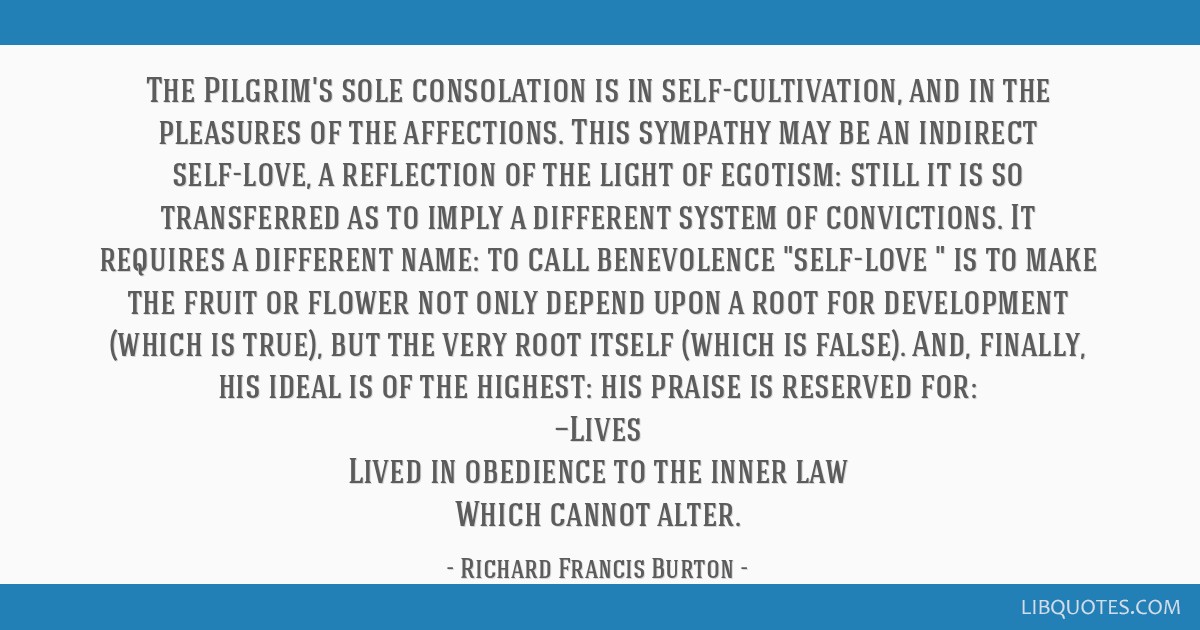The Pilgrim's sole consolation is in self-cultivation, and in the pleasures of the affections. This sympathy may be an indirect self-love, a reflection of the light of egotism: still it is so transferred as to imply a different system of convictions. It requires a different name: to call benevolence "self-love " is to make the fruit or flower not only depend upon a root for development (which is true), but the very root itself (which is false). And, finally, his ideal is of the highest: his praise is reserved for:
—Lives
Lived in obedience to the inner law
Which cannot alter.
The Kasîdah of Hâjî Abdû El-Yezdî (1870) - Note I : Hâjî Abdû, The Man























